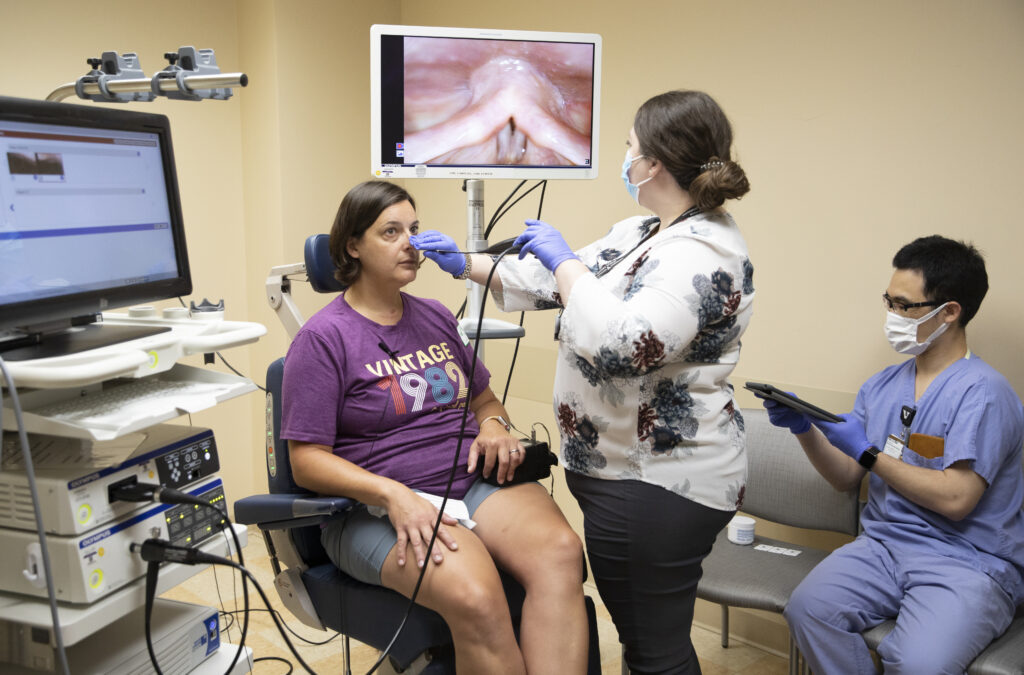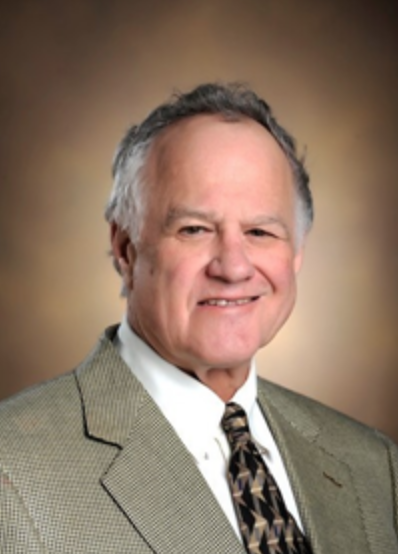The otolaryngology team at Vanderbilt University Medical Center has found groundbreaking success in using pacemaker technology to restore ventilation and vocal function in patients with severe bilateral vocal cord paralysis.
Members of Vanderbilt’s Department of Otolaryngology recently reported their preliminary findings from the ongoing Laryngeal Pacing Study, which is investigating the use of pacemaker technology to treat bilateral vocal fold paralysis.
“The earliest observational data is extremely compelling,” said Alexander Gelbard, M.D., an associate professor of otolaryngology and co-director of the Complex Airway Reconstruction Program (AeroVU). “Rapid reanimation of a paralyzed voice box is something we have never seen before – it’s truly paradigm-changing for this condition.”
“Rapid reanimation of a paralyzed voice box is something we have never seen before.”
Three patients have been successfully implanted with the bilateral pacemaker, with five more to follow in the coming months.
The surgical team includes investigators James Netterville, M.D., Gaelyn Garrett, M.D., and Sarah Rohde, M.D., along with Gelbard. The team developed and fine-tuned the implantation protocol over the past decade, making Vanderbilt the only institution in the world to perform the implantation surgery. The device is being developed in conjunction with Abbott Laboratories.
Devastating Diagnosis
In comparison to unilateral vocal fold paralysis, bilateral vocal fold paralysis is more dangerous and potentially deadly, as it can block the airway opening. Common causes of the condition include nerve injury due to neck or chest surgery involving the thyroid gland, esophagus, or cervical spine.
“Post-injury, voicing may be functional, but the airway compromise is usually severe enough to warrant a tracheostomy to allow for adequate breathing,” said David L. Zealear, Ph.D., a professor of otolaryngology-head and neck surgery and the original inventor of the technology.
Zealear is a principal investigator on the trial with co-investigator and speech-language pathologist Maria Powell, Ph.D., an assistant professor of otolaryngology-head and neck surgery at Vanderbilt.
Powell notes the most widely accepted treatments for bilateral paralysis are ablative techniques that widen the airway at the expense of vocal quality. Despite their impact on voicing, these traditional techniques only provide limited improvements in exercise function.
Ahead of the Curve
For the past 30 years, the Vanderbilt team has been propelling this technology forward, positioning itself as a global leader in the field.
“Our department has pioneered bilateral laryngeal pacing,” Gelbard said.
The researchers describe the pacer as a “more physiologic, dynamic approach to rehabilitation” in relation to previous surgical and other traditional approaches.
Using functional electrical stimulation, the pacer assists in opening of the vocal folds, as well as allowing them to relax when needed for vocalization and swallowing.
Based on their research, the investigators expect the pacer to restore normal ventilation without negatively affecting the patient’s voice or swallowing ability.
Making access to the procedure is the team’s next a priority. While only used in a clinical-trial setting so far, there is strong potential for use in other surgical settings, such as laryngeal transplantation for cancer patients, the investigators believe.
Expanding Research
“This study was a large collaborative effort, involving several research and clinical staff at our institution,” Gelbard said. “We’re really excited about our implanting our upcoming candidates and reporting our findings to the scientific community.”
Future plans include expansion of the research program, including a greater number of trial participants.
“We’re thrilled to broaden patient access to this transformative technology and restore breathing and voicing function to more patients,” Gelbard said.






